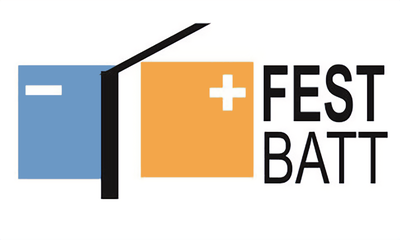
Contact

Prof. Dr. Florian Hausen
Acting Department Head
Building 01.3z / Room R 3010
+49 2461/61-4412
E-MailFestBatt 2
In the course of the expansion of renewable energy sources and the rapidly growing importance of electromobility, the overall demand for stored electrical energy will rise sharply in the coming years. The solid-state battery, which uses a solid electrolyte instead of liquid electrolytes, represents a further development of the lithium-ion battery that is currently primarily used. This further development leads to increased fire resistance and at the same time allows higher energy densities. An increase in service life is achieved through greater resistance of the electrolyte. The FestBatt project, which is currently in its second funding phase (https://www.festbatt.net), is intended to provide the basis for this. As part of this project, 21 groups from 12 different scientific institutions are working on solutions for the development and improvement of solid-state batteries.
An important part of the characterization of novel materials for solid-state batteries takes place at IET-1 (Hausen working group) at Forschungszentrum Jülich. In close cooperation with the Karlsruhe Institute of Technology, we determine both electronic and ionic conductivities locally on small scales. We use the ESM (electrochemical strain microscopy) method for this purpose. In this special method of atomic force microscopy, the mobile ions in the material are excited to oscillate by applying an alternating electric field and the expansion of the sample is determined. From this expansion and the relaxation time, it is possible to determine the mobility of the ions on the process-relevant scale and thus draw conclusions about the electronic and ionic conductivity. In addition, the morphology of the sample is investigated, taking into account the process parameters during production, as this also has a major influence on the quality of the resulting battery.
In the first funding phase, the BMBF-funded FestBatt project focused on the development of methods for the direct determination of ion mobility using magnetic resonance spectroscopy (NMR) and their use for the characterization of commercial and synthesized materials.
The focus will be on the applicability to a wide range of material classes, the ease with which the data can be analyzed and the scalability in terms of the number of samples investigated.
In a first step, methods for determining the diffusion constants without an applied external potential are to be implemented using both high-field and low-field NMR on selected test samples.
Subsequently, methods and setups will be developed to operate the samples under potential.
Finally, these techniques will be applied to a broader selection of samples from the material platforms and the measurements obtained will be made available via platform 'data' for material modelling and material optimization.
